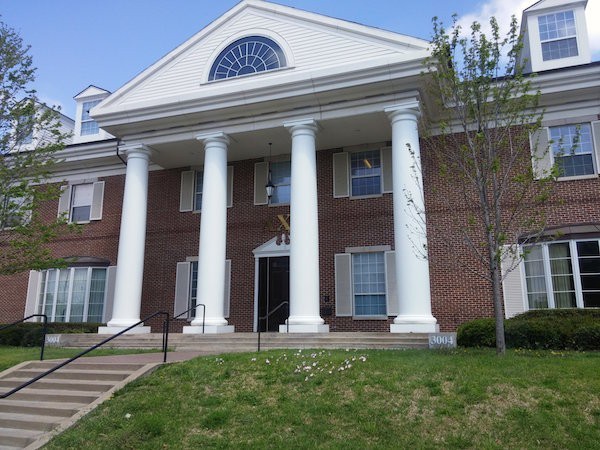
A group of students is hoping their proposal to the SMU administration will turn the former Lambda Chi Alpha house into an Innovation House.
According to the SMU Innovation House (iHouse) proposal, the iHouse would be a multidisciplinary community of SMU students driven by curiosity, creativity and collaboration.
“The goal of iHouse is, on an abstract level, quite simple: we want to make SMU an even better place and a relevant name in innovation and entrepreneurship,” the project’s de facto leader Ian Johnson said.
The proposal states that the students are seeking a two-year trial period for the living and learning community, as the Lambda Chi Alpha house is vacated, but still under Residence Life and Student Housing.
The 11 students who created the proposal are hoping to bring “together creative and aspiring students in a collaborative, purpose-driven, and inspiring environment.” Those who live in the iHouse will be required to complete their own project or collaborate with other members or SMU students on a larger project.
The idea for the iHouse was a collaboration between students and Mark Fontenot, Loyd Commons founding Faculty-in-Residence and computer science professor in Lyle. Fontenot said he reached out to students with the innovation house idea after reading The Daily Campus’ story on Lambda’s suspension.
“I still think there are new opportunities to try things even in the world of Residential Commons systems; to push the boundaries and see what works and doesn’t work,” Fontenot said.
He met, as a faculty advisor, with the students for several brainstorming sessions and meetings. According to Fontenot, the students themselves wrote the proposal and created the ideas within the iHouse.
“I helped them flesh them [ideas] out a little bit, but also wanted them to think as creatively as possible of what something like the iHouse would mean,” he said.
Johnson said the concept of an innovation community has been in the works for a while, as the idea draws from the interest and research in innovation done by SMU faculty.
“Many of the students and faculty involved in the iHouse proposal have long-standing interests in the ideas of innovation, makership and entrepreneurship,” he said.
The students behind the iHouse argue that proposal itself is a good example of what the community is meant to embody.
“To be able to text your friend with a random idea and then two weeks later have a professional-looking proposal written to turn the idea into reality; that is the kind of connections we want people to have,” Grace Hileman said.
Members of the iHouse would include residents, a faculty fellow to lead the community in collaboration, a community director to oversee community programming and goal setting, a resident president, a resident head of community and a resident head of outreach.
Programming of the house would include a “Genius Hour” to work on ideas, “Hack the House” to develop improvements within the iHouse, a Fall Fair and Spring Gala to show off ideas, “iHouse on the Road” to reach the community and weekly house dinners.
Those interested in joining the house must be at least a sophomore and be in good academic and disciplinary standing with SMU. Undergraduates from all majors are invited to apply as long as they are interested in innovation and entrepreneurship. Students will be required to fill out an application and complete an interview before being accepted.
“If approved, we will be a bit rushed for getting people approved for the Fall 2016 semester, but with the interest being shown in our idea, I don’t think there will be an issue with filling the house,” Hileman said.
The official proposal was sent to Provost Steven C. Currall and Vice President for Student Affairs Pamela D. Anthony April 2. According to Fontenot, Hileman and Johnson, the administrative response to the proposal has been positive.
“Faculty members are raving about iHouse,” Johnson said. “We’ve yet to encounter a faculty member who thinks that this idea is anything but the best solution to occupy the vacated house.”
Fontenot has found the same response.
“I have not talked to a single person on the faculty, staff or administration side that had any bad or lukewarm response to the idea,” he said.
The students are optimistic that the proposal will pass, despite the competition for the vacant house from fraternities and the Service House. This confidence also comes from the successes seen at universities SMU rivals, such as the University of Pennsylvania’s Social Impact House and Duke University’s Smart House.
“We’re hoping to see a wide variety of projects from iHouse – everything from web startups to painting to starting a small business,” Johnson said. “The beauty of this idea, and the nature of innovation, is that it’s hard to guess what will be made.”








